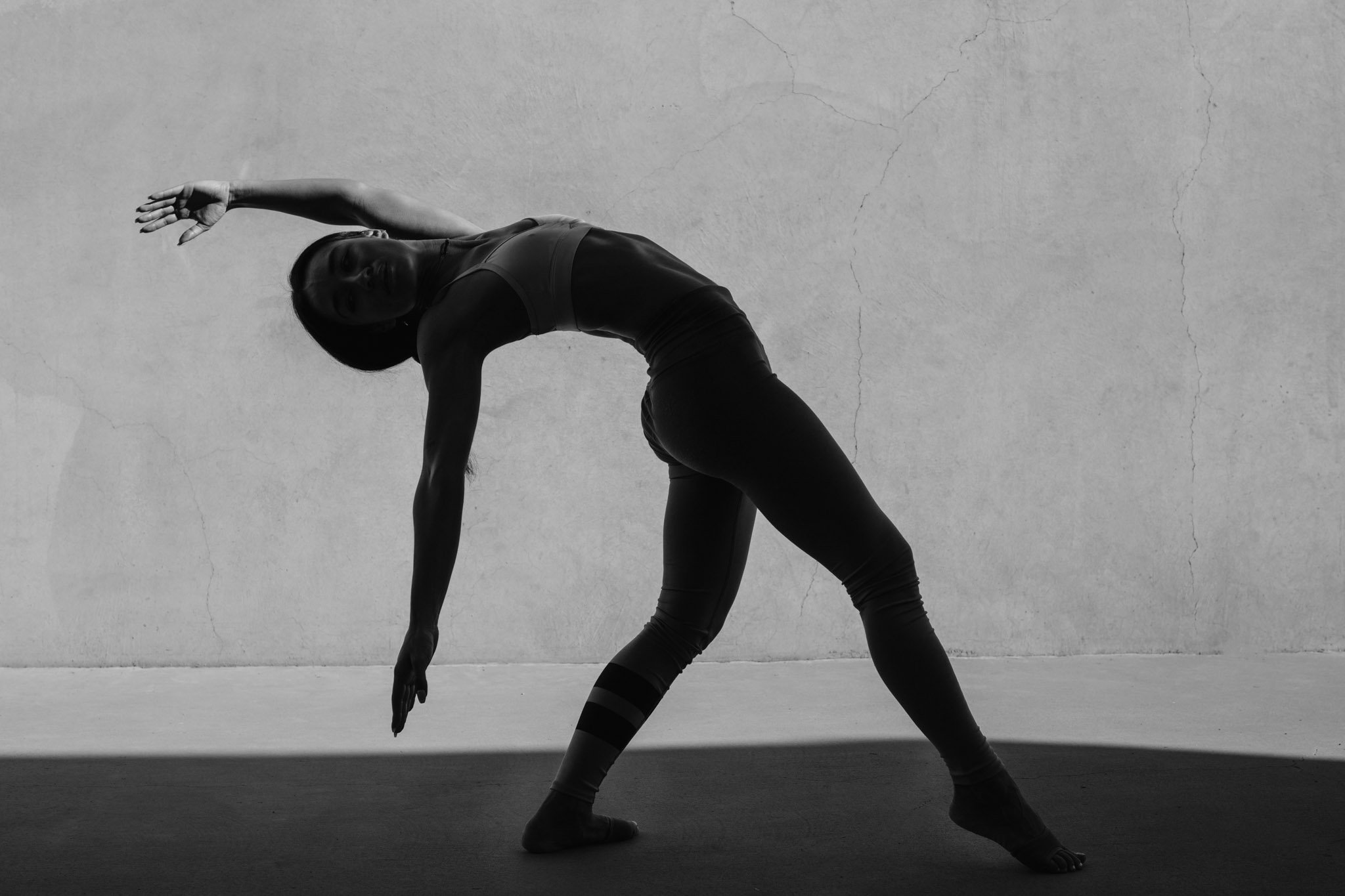
Movement is an essential aspect of our lives. From the moment we come into this world, we are constantly in motion. Whether it’s walking, running, or simply fidgeting in our seats, our bodies are designed to be in constant movement. But movement is not just limited to physical actions. It encompasses a wide range of activities, from the simple act of breathing to the complex movements involved in dancing or playing a sport. In this article, we will explore 18 fascinating facts about movement that will not only provide you with a deeper understanding of this inherent human ability but also shed light on the various ways movement influences our everyday lives. So, get ready to delve into the world of movement and discover some intriguing insights!
Key Takeaways:
- Keep moving to keep your body and mind healthy! Regular physical activity can improve memory, reduce stress, and even help you sleep better. So, get up and get moving for a happier, healthier you!
- Different types of movement offer different benefits. From boosting energy levels to improving posture and balance, finding activities you enjoy can make staying active fun and fulfilling.
The Human Body is Designed for Movement
The human body is a marvelous machine, perfectly engineered for movement. From the coordination of muscles to the flexibility of joints, our bodies are designed to thrive through physical activity.
Movement Enhances Cognitive Function
Engaging in regular physical activity has been shown to improve cognitive function. From boosting memory to enhancing creativity, movement stimulates brain activity and improves mental acuity.
Daily Movement Lowers the Risk of Chronic Diseases
Leading a sedentary lifestyle increases the risk of developing chronic diseases such as heart disease, diabetes, and certain types of cancer. Regular movement, on the other hand, significantly reduces these risks.
The Benefits of Movement Extend Beyond Physical Health
While movement is undoubtedly beneficial for physical health, its advantages stretch beyond that. Regular activity also improves mental well-being, reduces stress levels, and promotes a sense of overall happiness.
Movement is Essential for Maintaining a Healthy Weight
Regular movement, alongside a balanced diet, is crucial for weight management. Engaging in physical activity helps burn calories, builds muscle mass, and increases metabolism, allowing for better weight control.
Movement Can Help Prevent Osteoporosis
Weight-bearing activities, such as walking, running, and weightlifting, can help improve bone density and prevent osteoporosis. Regular movement strengthens bones and reduces the risk of fractures.
Different Types of Movement Yield Different Benefits
Engaging in a variety of movements, such as aerobic exercises, strength training, and flexibility exercises, provides a wide range of benefits. Each type of movement targets different parts of the body and contributes to overall fitness.
Movement Boosts Energy Levels
Feeling tired or sluggish? Get up and move! Physical activity increases blood flow and oxygenation, leading to a surge in energy levels. Regular movement can help combat fatigue and improve productivity.
Movement Can Improve Posture
Sitting for prolonged periods can result in poor posture and back pain. Incorporating movement into daily routines, such as stretching or practicing yoga, can help improve posture, alleviate pain, and enhance overall spinal health.
Movement Promotes Better Sleep
Struggling to sleep? Regular movement can help regulate the body’s natural sleep-wake cycle and promote better sleep. However, it’s important to exercise earlier in the day to avoid stimulating the body too close to bedtime.
Movement Improves Cardiovascular Health
Engaging in aerobic activities, such as jogging, swimming, or cycling, strengthens the heart and improves cardiovascular health. Regular movement reduces the risk of heart disease, lowers blood pressure, and improves circulation.
Movement Boosts Immunity
Physical activity has been shown to enhance the immune system. Regular movement increases the production of antibodies and activates immune cells, helping the body fight off infections and diseases.
Movement Can Delay the Aging Process
Regular physical activity has anti-aging effects on the body. It helps maintain muscle strength, flexibility, and bone density, while also improving cognitive function and overall vitality.
Movement Improves Balance and Coordination
Through activities like yoga, dancing, or martial arts, movement enhances balance and coordination skills. Regular practice can improve proprioception, spatial awareness, and reduce the risk of falls.
Movement Boosts Confidence and Self-esteem
Regular physical activity has been linked to improved self-confidence and self-esteem. Achieving fitness goals, seeing physical progress, and feeling better about oneself contribute to higher levels of self-worth.
Movement Can Be Enjoyable
Movement doesn’t have to be a chore; it can be a source of enjoyment. Engaging in activities that you love, such as dancing, hiking, or playing a sport, can make movement a fun and fulfilling part of your life.
Movement Can Enhance Social Connections
Joining group fitness classes or participating in team sports provides opportunities for social interaction and connection. Movement can foster new friendships, strengthen bonds, and promote a sense of belonging.
Movement Is for Everyone
No matter your age, abilities, or fitness level, movement is for everyone. Whether it’s a gentle walk, a light swim, or a challenging workout, finding the right movement for you can improve your overall well-being and quality of life.
Conclusion
Movement is a fundamental aspect of life that often goes unnoticed. Whether it’s the simple act of walking or the complex movements involved in athletic performances, understanding the importance of movement can greatly impact our overall well-being. From improving physical health to enhancing cognitive function, movement offers a multitude of benefits.
By incorporating regular physical activity into our daily routines, we can improve cardiovascular health, strengthen muscles and bones, and boost our immune system. Moreover, movement is not limited to physical benefits alone; it also plays a vital role in mental and emotional well-being. Engaging in exercise releases endorphins, reducing stress and promoting a positive mood.
Additionally, movement has a profound effect on brain function. Research suggests that regular physical activity can enhance cognitive abilities such as memory, attention, and problem-solving skills. Moreover, movement stimulates neurogenesis, the growth of new neurons, which is critical for maintaining brain health and preventing cognitive decline.
In conclusion, movement is a crucial aspect of our lives that should not be overlooked. By embracing physical activity and incorporating movement into our daily routines, we can enjoy improved physical and mental well-being.
FAQs
1. How much movement should I incorporate into my daily routine?
It is recommended to engage in at least 150 minutes of moderate-intensity aerobic activity or 75 minutes of vigorous-intensity aerobic activity per week. This can be achieved through activities such as brisk walking, cycling, or swimming.
2. Can movement help with weight management?
Absolutely! Regular physical activity increases calorie expenditure, which can help with weight loss and weight maintenance. Combining movement with a healthy diet can yield even better results.
3. What are some exercises that can improve flexibility?
Stretching exercises such as yoga, Pilates, and static stretches can improve flexibility. It is important to warm up before stretching and perform each stretch properly to prevent injury.
4. Can movement improve mental well-being?
Yes, engaging in physical activity releases endorphins, which are natural mood boosters. Regular exercise can reduce symptoms of anxiety and depression and promote overall mental well-being.
5. Is movement beneficial for older adults?
Absolutely! Regular physical activity can improve strength, balance, and flexibility in older adults, reducing the risk of falls and promoting independence.
Movement plays a vital role in our lives, from boosting energy and improving sleep to enhancing cognitive function and preventing chronic diseases. Exploring the world of movement is just the beginning of a fascinating journey. If you're curious about how communities and social movements shape our society, check out the intriguing facts about Jurupa Valley, California, and Binghamton, New York. For those with an artistic flair, delve into the lives and works of renowned artists who have left an indelible mark on the world. Keep your mind active and engaged by discovering more captivating topics that await you.
Was this page helpful?
Our commitment to delivering trustworthy and engaging content is at the heart of what we do. Each fact on our site is contributed by real users like you, bringing a wealth of diverse insights and information. To ensure the highest standards of accuracy and reliability, our dedicated editors meticulously review each submission. This process guarantees that the facts we share are not only fascinating but also credible. Trust in our commitment to quality and authenticity as you explore and learn with us.


